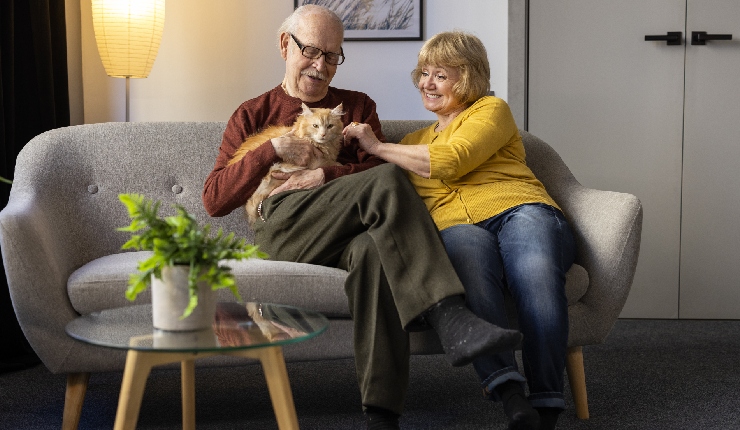Introduction:
Managing Alzheimer’s in seniors presents unique challenges, especially for those with limited or unprofessional support. Alzheimer’s disease, a form of dementia, progressively impairs memory and cognitive abilities, making daily life increasingly difficult. In such cases, senior care homes become invaluable resources. These homes, staffed with trained nurses and Alzheimer’s senior caregivers, offer specialized care tailored to the needs of those with this condition. This blog explores the benefits of Alzheimer’s care homes (Alzheimer’s Care Home) in managing the disease and providing a supportive environment for seniors.
Understanding Alzheimer’s Disease:
- Progressive Cognitive Decline: Alzheimer’s disease gradually affects memory, reasoning, and communication, altering a senior’s ability to manage daily activities.
- Emotional and Behavioral Changes: Seniors with Alzheimer’s may experience mood swings, confusion, and changes in personality.
The Role of Senior Care Homes in Alzheimer’s Management:
- Specialized Care: Senior care homes offer technical care plans, including medication management, cognitive therapies, and activities tailored for Alzheimer’s patients.
- Trained Staff: Caregivers and nurses training in Alzheimer’s care provide understanding and skilled support.
Creating a Safe and Nurturing Environment:
- Adapted Living Spaces: Care homes are designed to be safe and easy to navigate, reducing risks and promoting independence for as long as possible.
- Stable and Familiar Surroundings: A consistent environment helps minimize confusion and anxiety in Alzheimer’s patients.
Personalized Care and Attention:
- Individualized Care Plans: Each resident’s history, preferences, and stage of Alzheimer’s are considered when developing their care plan.
- Continuous Monitoring: Ongoing assessment allows for adjustments in care as the disease progresses.
Therapeutic Activities and Programs:
- Cognitive Stimulation: Activities designed to stimulate memory and cognitive function are key to Alzheimer’s care.
- Physical and Social Activities: Regular physical and social activities help maintain overall health and well-being.
Support for Mental and Emotional Health:
- Emotional Support: Staff provide empathy and companionship, addressing the emotional needs of Alzheimer’s patients.
- Family Involvement and Support: Families receive guidance and support to better understand and cope with their loved one’s condition.
The Importance of Professional Care:
- Expertise in Alzheimer’s: Professional caregivers possess the expertise necessary to manage the complexities of Alzheimer’s.
- Relief for Families: Knowing that their loved one is in capable and compassionate hands relieves families.
Innovative Approaches to Alzheimer’s Care:
- Use of Technology: Innovative technologies, such as GPS tracking for safety and interactive cognitive games, are increasingly integrated into Alzheimer’s care.
- Sensory Stimulation: Sensory rooms and activities like music or art therapy can be calming and stimulate cognitive functions in Alzheimer’s patients.
Encouraging Independence and Self-Esteem:
- Empowering Activities: Activities that promote a sense of accomplishment, however small, help maintain residents’ self-esteem and independence.
- Respecting Individuality: Caregivers focus on what residents with Alzheimer’s can do rather than what they cannot, encouraging a sense of self-worth.
Comprehensive Health Care Services:
- Regular Medical Oversight: Regular check-ups and health assessments by medical professionals ensure that all health needs are met.
- Coordination with Health Professionals: Seamless coordination between caregivers, nurses, and doctors ensures a holistic approach to each resident’s health.
Focus on Nutrition and Physical Well-being:
- Nutritious Meals: Meals are tailored to meet nutritional needs and preferences, which are crucial for the overall well-being of Alzheimer’s patients.
- Physical Exercise: Regular, gentle exercises are designed to maintain mobility and physical health.
Creating a Community of Care and Empathy:
- Building Relationships: Encouraging relationships between residents, staff, and families creates a supportive and empathic community.
- Group Activities: Group activities foster a sense of belonging and provide opportunities for social interaction.
Education and Support for Families:
- Informational Sessions: Regular sessions and resources are provided to families to help them understand and manage Alzheimer’s disease.
- Emotional Support: Emotional support for families, including counselling and support groups, is essential to Alzheimer’s care.
Adapting to the Progressive Nature of Alzheimer’s:
- Flexible Care Plans: Care plans are regularly reviewed and adapted to meet the evolving needs of residents as Alzheimer’s progresses.
- End-of-Life Care: Compassionate end-of-life care focuses on comfort and dignity in the later stages of the disease.
Conclusion: Managing Alzheimer’s in seniors requires a compassionate, comprehensive approach that senior care homes are uniquely equipped to provide. These facilities offer not just medical care and safety but also a nurturing environment where seniors with Alzheimer’s can live with dignity and as much independence as possible. Trained caregivers and nurses and a supportive community ensure that residents receive the best possible care, making these homes an apt choice for families seeking assistance in managing Alzheimer’s for their loved ones.


